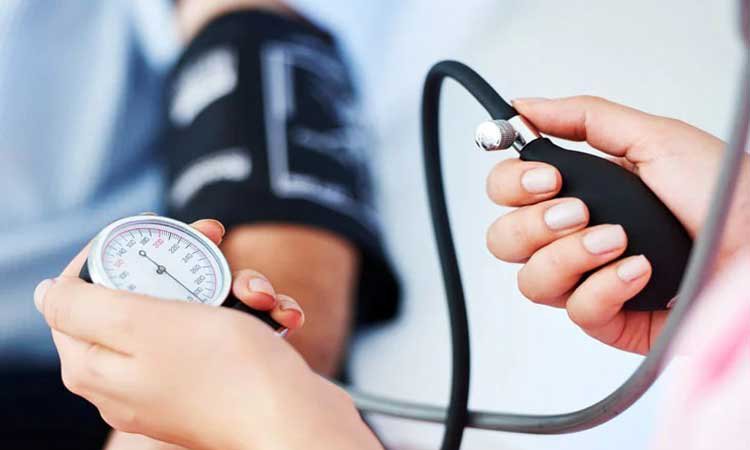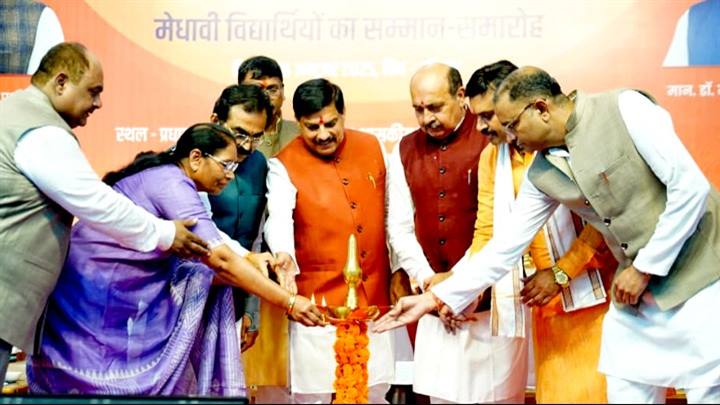Understanding and Managing High Blood Pressure: Symptoms, Treatment, and Prevention
High blood pressure, also known as hypertension, often does not cause any noticeable symptoms in its early stages, which is why it is often referred to as the "silent killer."

High blood pressure, also known as hypertension, often does not cause any noticeable symptoms in its early stages, which is why it is often referred to as the "silent killer." However, there are a few signs that may indicate that you have high blood pressure.
These include: Headaches: Headaches can be an early warning sign of high blood pressure. However, not all headaches are caused by high blood pressure, and many people with hypertension do not experience headaches.
Dizziness: Dizziness or lightheadedness can occur when your blood pressure is extremely high. This is because the high pressure in your blood vessels can make it difficult for blood to reach your brain.
Blurred vision: Blurred vision or other visual disturbances may be a sign of high blood pressure. This is because high blood pressure can damage the blood vessels in your eyes.
Shortness of breath: If your blood pressure is very high, it can make it difficult to breathe. This is because the heart has to work harder to pump blood through your body.
Chest pain: Chest pain can be a sign of a heart attack, which can be caused by high blood pressure. However, there are many other potential causes of chest pain, so it's important to get medical attention right away if you experience this symptom.
It's important to note that these symptoms are not exclusive to high blood pressure and could be related to other health conditions. If you are experiencing any of these symptoms, it's important to talk to your doctor to determine the underlying cause. Additionally, high blood pressure is often diagnosed during routine blood pressure checks, so it's important to get your blood pressure checked regularly, especially if you have a family history of hypertension or other risk factors.
There are several measures and medications that can help to normalize blood pressure, including:
Lifestyle changes: Making healthy lifestyle changes is an important first step in managing high blood pressure. This may include:
Eating a healthy diet that is low in salt and rich in fruits, vegetables, and whole grains.
Engaging in regular physical activity, such as brisk walking, cycling, or swimming.
Maintaining a healthy weight and body mass index (BMI).
Avoiding smoking and limiting alcohol consumption.
Medications: If lifestyle changes alone are not enough to lower your blood pressure, your doctor may recommend medication. There are several types of medications used to treat high blood pressure, including:
Diuretics: These medications help your body to get rid of excess salt and water, which can help to reduce blood volume and lower blood pressure.
ACE inhibitors: These medications relax blood vessels, making it easier for blood to flow through them.
Calcium channel blockers: These medications help to relax blood vessels and reduce the workload on the heart.
Beta-blockers: These medications help to slow the heart rate and reduce the force of heart contractions, which can help to lower blood pressure.
Combination therapy: In some cases, your doctor may recommend using more than one medication to manage your blood pressure.
It's important to work closely with your doctor to find the right combination of lifestyle changes and medications to manage your blood pressure. You may need to monitor your blood pressure regularly and adjust your treatment plan as needed to ensure that your blood pressure remains within a healthy range.
While lifestyle changes and medication are the most effective ways to prevent and manage high blood pressure, there are some home remedies that may help support healthy blood pressure. These include:
Eating a healthy diet: A diet rich in fruits, vegetables, whole grains, lean proteins, and low-fat dairy products can help support healthy blood pressure. In particular, consuming foods that are high in potassium, such as bananas, spinach, and sweet potatoes, may help lower blood pressure.
Reducing sodium intake: Consuming too much salt can contribute to high blood pressure. Try to limit your sodium intake by avoiding processed foods, using herbs and spices to flavor your food instead of salt, and choosing low-sodium options when available.
Maintaining a healthy weight: Being overweight or obese can increase the risk of high blood pressure. Maintaining a healthy weight through a balanced diet and regular exercise can help prevent high blood pressure.
Engaging in regular physical activity: Regular physical activity can help improve cardiovascular health and support healthy blood pressure. Aim for at least 30 minutes of moderate-intensity exercise, such as brisk walking or cycling, on most days of the week.
Managing stress: Chronic stress can contribute to high blood pressure. Finding healthy ways to manage stress, such as through meditation, yoga, or deep breathing exercises, can help support healthy blood pressure.
It's important to note that these home remedies may not be enough to manage high blood pressure on their own, and it's important to work with a healthcare provider to develop a comprehensive treatment plan. Additionally, if you have high blood pressure or are at risk of developing it, it's important to monitor your blood pressure regularly and follow your healthcare provider's recommendations for managing your condition.






















